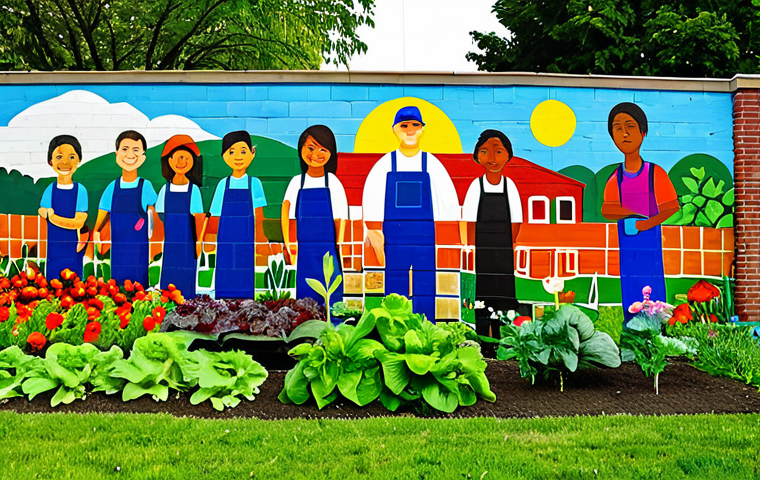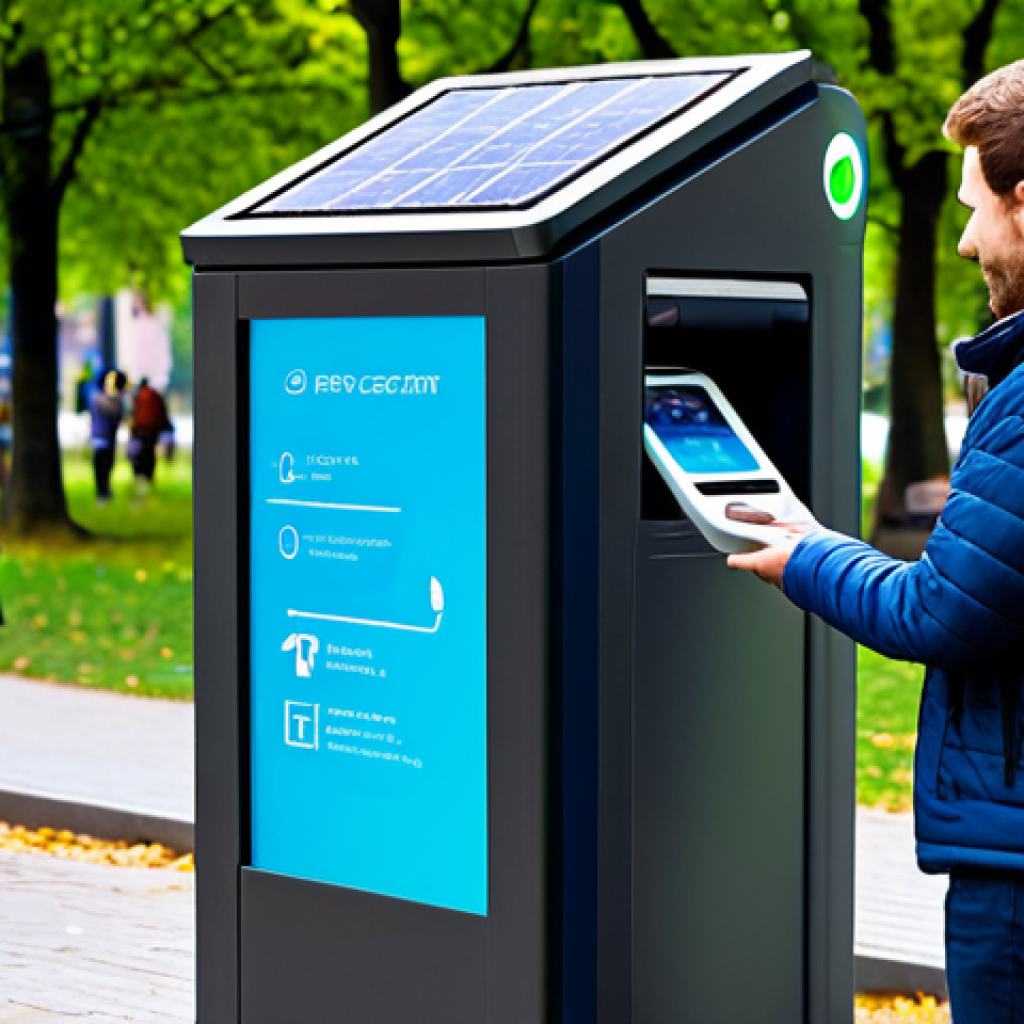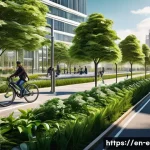So, you’re gearing up for an environmental contest? That’s awesome! I’ve been there, done that, and let me tell you, it’s a wild ride of brainstorming, research, and last-minute tweaks.
The key is to find a project you’re genuinely passionate about – something that sparks your interest and feels like more than just an assignment. Think about problems you see around you, from local waste management to broader climate issues.
Remember, originality counts, but so does practicality. A well-executed, feasible idea will always trump a grand, unrealistic one. I know I’m excited to dive deeper to figure out exactly what would give you the best shot at winning.
Let’s explore this further in the following article!
Alright, let’s get this environmental contest entry nailed!
Finding Your Niche: Brainstorming Like a Pro

Let’s face it; the world is riddled with environmental issues begging for solutions. But tackling *all* of them? Impossible.
The trick is to zoom in. Start local. What frustrates you in your immediate surroundings?
Is it the overflowing recycling bins at school? The lack of green spaces in your neighborhood? Or maybe the way your local grocery store over-packages its produce?
Jot down every single idea that pops into your head, no matter how silly it seems. Then, once you have a list, start digging a little deeper. Research each problem.
See what’s already being done to address it. Are there existing initiatives you can piggyback on? Or are you spotting gaps that no one else has noticed?
Trust me; a well-defined, laser-focused problem is half the battle won.
Identifying Local Issues
* Waste Reduction at School: Ever noticed how much food gets tossed in the cafeteria? Or the endless stacks of paper in the classrooms? Propose a comprehensive recycling program, focusing on sorting, composting, and reducing paper consumption.
Maybe even partner with local restaurants to donate leftover food!
Evaluating Existing Solutions
* Community Garden Project: Lots of cities have community gardens, but are they truly accessible to everyone? Consider a project that focuses on making gardening inclusive, with raised beds for wheelchair users, multilingual signage, and workshops tailored to different skill levels.
I’ve seen these ideas blossom when you involve the community members themselves in the planning process, leading to a greater chance of success.
Thinking Outside the Box
* Upcycling Fashion Waste: Fast fashion is a huge problem, but what if we could turn discarded clothes into something new? Imagine organizing a community workshop where people learn to transform old jeans into tote bags or t-shirts into reusable shopping bags.
It’s a fun, creative way to address waste and promote sustainable living.
Making Your Project Stand Out: The “Wow” Factor
Okay, so you’ve got a solid idea. Now it’s time to inject some pizzazz! This is where you brainstorm ways to make your project not just effective, but also innovative and memorable.
What unique angle can you bring to the table? Think about incorporating technology, art, or community engagement in unexpected ways. Don’t be afraid to get a little wacky!
Sometimes the craziest ideas are the ones that capture people’s attention. The key is to find a balance between originality and practicality. Can you actually pull off your vision with the resources you have?
Or are you biting off more than you can chew?
Leveraging Technology
* Smart Recycling Bins: Imagine recycling bins that use sensors to identify the type of waste being deposited and automatically sort it accordingly.
You could even create a companion app that rewards users with points for proper recycling, incentivizing participation.
The Power of Art
* Environmental Murals: Commissioning local artists to create murals that depict the beauty of nature or highlight the impact of pollution can be a powerful way to raise awareness.
I’ve seen this work firsthand when a group did this in a blighted part of town. Not only does it beautify public spaces, but it also sparks conversations and encourages people to think about their relationship with the environment.
Community-Based Initiatives
* Eco-Challenges: Organize a series of fun, engaging challenges that encourage people to adopt sustainable habits. Think “Meatless Mondays,” “Plastic-Free Fridays,” or “Bike to Work Week.” Offer prizes for participation and track the collective impact of everyone’s efforts.
Turning Passion into Action: The Implementation Game Plan
Ideas are great, but execution is everything. This is where you map out the nitty-gritty details of how you’re actually going to bring your project to life.
Start by breaking down your project into smaller, manageable tasks. What resources will you need? Who will you need to partner with?
What potential obstacles might you encounter along the way? Creating a detailed timeline and budget will help you stay on track and avoid getting overwhelmed.
And don’t forget to build in some flexibility! Things rarely go exactly as planned, so be prepared to adapt and adjust as needed. I’ve learned the hard way, contingency planning can save your project from failing completely.
Resource Acquisition
* Securing Funding: Grant writing can seem daunting, but there are tons of resources available to help you craft a compelling proposal. Look for grants specifically targeted at environmental projects, and don’t be afraid to ask for help from teachers, mentors, or community organizations.
Building Partnerships
* Collaborating with Local Businesses: Reach out to businesses that align with your project’s goals. Maybe a local grocery store would be willing to donate food scraps for composting, or a hardware store could provide materials for building a community garden.
Addressing Potential Challenges
* Community Resistance: Not everyone will be on board with your project, so be prepared to address concerns and objections. Engage with critics respectfully, listen to their perspectives, and find ways to incorporate their feedback into your plans.
Documenting Your Journey: Showcasing Your Impact
You’re doing awesome work! But who’s going to know about it if you don’t tell them? Document your entire journey, from the initial brainstorming sessions to the final results.
Take lots of photos and videos, write blog posts, and share your story on social media. Creating a visually appealing presentation is crucial for showcasing your project to the judges.
Highlight the problem you’re addressing, the solutions you’re implementing, and the impact you’re making. Use data and statistics to back up your claims, and don’t be afraid to get personal.
Let your passion shine through!
Visual Storytelling
* Creating a Compelling Video: A short, well-produced video can be incredibly effective in capturing the essence of your project. Show the problem, highlight the solutions, and feature testimonials from people who have been impacted by your work.
Data Visualization
* Infographics: Transform complex data into easily digestible visuals that illustrate the impact of your project. Charts, graphs, and maps can help you communicate your findings in a clear and engaging way.
I find a little creativity can go a long way in driving home the message.
Sharing Your Story on Social Media
* Engaging Content: Use social media to share updates, photos, and videos of your project in action. Engage with your followers, respond to comments, and create a sense of community around your work.
The Importance of Adaptability: Rolling with the Punches

Let’s be real, environmental work isn’t always smooth sailing. You might face unexpected challenges, setbacks, or even failures. The key is to stay resilient and adaptable.
Don’t be afraid to pivot your approach if something isn’t working. Learn from your mistakes and keep moving forward. Environmental projects often involve navigating complex systems and dealing with diverse stakeholders.
Patience, perseverance, and a willingness to compromise are essential for success. Remember, even small victories can make a big difference in the long run.
I truly believe this mindset can not only help with the contest, but with all areas of life.
Overcoming Obstacles
* Unexpected Budget Cuts: If funding falls through, get creative! Explore alternative fundraising options, such as crowdfunding, sponsorships, or in-kind donations.
Pivoting Your Approach
* Unexpected Setbacks: If your initial plan isn’t working, don’t be afraid to change course. Reassess the situation, identify new opportunities, and adjust your strategy accordingly.
Maintaining Perseverance
* Staying Motivated: Environmental work can be emotionally draining, so it’s important to take care of yourself. Celebrate your successes, connect with other environmentalists, and remember why you’re doing this work in the first place.
Understanding the Judging Criteria: What Are They Looking For?
Before you submit your project, take a close look at the judging criteria. What are the judges looking for in terms of innovation, impact, and sustainability?
Make sure your presentation addresses each criterion explicitly. Think about how your project aligns with the contest’s mission and values. Are you addressing a pressing environmental issue?
Are you using creative and effective solutions? Are you demonstrating a commitment to long-term sustainability? If you can answer “yes” to these questions, you’re on the right track!
Innovation
* Originality: Is your project offering a fresh perspective or approach to solving an environmental problem?
Impact
* Measurable Results: Are you able to demonstrate the positive impact of your project in terms of environmental, social, or economic benefits?
Sustainability
* Long-Term Viability: Is your project designed to be sustainable over the long term, or is it a one-time fix?
Sustainability Metrics
Here’s a breakdown of common metrics used to evaluate the sustainability of environmental projects:
| Metric | Description | Relevance |
|---|---|---|
| Carbon Footprint Reduction | Measures the decrease in greenhouse gas emissions as a result of the project. | Crucial for climate change mitigation. |
| Waste Diversion Rate | The percentage of waste diverted from landfills through recycling, composting, or other methods. | Indicates success in reducing waste generation. |
| Water Usage Efficiency | Measures the amount of water used per unit of output or activity. | Essential for water conservation. |
| Biodiversity Enhancement | Assesses the impact of the project on local flora and fauna. | Relevant for habitat restoration and conservation projects. |
| Community Engagement | Quantifies the level of community participation in the project. | Indicates social sustainability and community ownership. |
Post-Contest Actions: Sustaining Momentum and Expanding Impact
Even if you don’t win, your journey doesn’t have to end with the contest. Use the experience to build momentum and expand the impact of your project. Continue to engage with your community, seek out new partnerships, and explore opportunities to scale up your initiatives.
Don’t be discouraged by setbacks or failures. Environmental work is a marathon, not a sprint. Keep learning, keep growing, and keep making a difference in the world.
Your passion and dedication can inspire others to join the movement and create a more sustainable future.
Ongoing Community Engagement
* Workshops and Events: Continue to organize workshops, events, and activities that promote environmental awareness and sustainable living.
Scaling Up Initiatives
* Replicating Your Project: Explore opportunities to replicate your project in other communities or settings.
Inspiring Others
* Sharing Your Story: Continue to share your story and inspire others to take action. Your passion and dedication can make a big difference in the world.
Finding your niche, making your project stand out, planning, documenting, adapting, understanding judging criteria and sustaining momentum are the key components to win environmental contests and create meaningful change.
Wrapping Up
So, there you have it! A comprehensive guide to acing that environmental contest. Remember, it’s not just about winning; it’s about making a real difference in your community and inspiring others to join the cause. Keep innovating, keep collaborating, and keep fighting for a more sustainable future. Your passion and dedication can make a world of difference.
Useful Tips
Here are some bonus tips that can help you ace your contest entry:
1. Network with local environmental organizations and experts. They can provide valuable insights, resources, and support for your project.
2. Attend environmental conferences and workshops to learn about the latest trends and best practices in the field.
3. Utilize online tools and resources to track your progress and measure your impact.
4. Seek feedback from mentors, teachers, and community leaders to refine your project and presentation.
5. Celebrate your successes and learn from your failures. Environmental work is a journey, not a destination.
Key Takeaways
To recap, here are the essential points to remember:
Clearly define your problem and focus on local issues.
Brainstorm innovative solutions and inject some “wow” factor into your project.
Create a detailed implementation plan and timeline.
Document your journey and showcase your impact with compelling visuals and data.
Adapt to challenges and maintain perseverance.
Frequently Asked Questions (FAQ) 📖
Q: I’m really stuck trying to come up with a project idea.
A: ny tips for finding inspiration? A1: Oh, the dreaded brainstorming block! I totally get it.
Instead of staring at a blank page, try this: walk around your neighborhood or school. Seriously. Look for things that bother you.
Is there a ton of litter blowing around? Is the school garden looking sad? Talk to your neighbors or teachers.
They might have ideas or know about local environmental challenges. I found my project idea by volunteering at a local park cleanup. Seeing all that trash made me want to find a way to reduce plastic waste!
Also, don’t discount the power of online resources. Websites like EPA.gov or your local government’s environmental pages can be goldmines for finding problems that need solving.
The trick is to think local, act local!
Q: How important is it to have a really complex and technical project? I’m worried mine isn’t “science-y” enough.
A: You know, that’s a really common worry! I actually made that mistake in my first competition. I tried to do something super complicated with measuring carbon footprints, but it was a total mess.
The judges were much more impressed with my friend’s project, which was about improving recycling rates at her school. It was simple, practical, and made a real difference.
So, don’t feel like you need to invent a new type of solar panel. Focus on a problem you can actually solve, even in a small way. Clear goals, well-documented results, and a genuine passion for your topic will impress the judges way more than a complicated project you barely understand.
Trust me on this one.
Q: What’s the best way to present my project so that it really stands out?
A: Ah, presentation is everything! Think of it like telling a really good story. Start by grabbing the audience’s attention with a compelling problem.
Then, clearly explain your solution and why it’s awesome. Don’t just rattle off facts and figures; show them! Use visuals like photos, charts, or even a short video to bring your project to life.
I learned this the hard way. My first presentation was just me reading off a piece of paper! It was so boring.
The next year, I built a mini-prototype and demonstrated how it worked. It made a huge difference! Practice your presentation until you’re comfortable, and don’t be afraid to let your personality shine through.
Enthusiasm is contagious! And, always be ready to answer questions intelligently and honestly. Good luck!
📚 References
Wikipedia Encyclopedia
구글 검색 결과
구글 검색 결과
구글 검색 결과
구글 검색 결과






